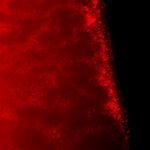Lien vers Pubmed [PMID] – 9651527
Brain Res. Brain Res. Rev. 1998 May;26(2-3):198-216
The introduction, in the late sixties, of the concepts and methods of molecular biology to the study of the nervous system had a profound impact on the field, primarily through the identification of its basic molecular components. These structures include, for example, the elementary units of the synapse: neurotransmitters, neuropeptides and their receptors, but also ionic channels, intracellular second messengers and the relevant enzymes, cell surface adhesion molecules, or growth and trophic factors [21,78,81, 52,79]. Attempts to establish appropriate causal relationships between these molecular components, the actual organisation of neural networks, and a defined behavior, nevertheless, still must overcome many difficulties. A first problem is the recognition of the minimum levels of organisation, from the molecular, cellular, or multicellular (circuit) to the higher cognitive levels, that determine the given physiological and/or behavioral performance under investigation. A common difficulty (and potential source of errors of interpretation) is to relate a cognitive function to a network organization which does not possess the required structural complexity and vice-versa. Another problem is to distinguish, among the components of the system, those which are actually necessary and those which, taken together, suffice for a given behavior to take place. Identification of such a minimal set of building blocks may receive decisive insights from the elaboration of neurally plausible formal models that bring together, within a single and coherent ‘artificial organism’, the neuronal network, the circulating activity, and the behavior they determine (see [42,43,45,72,30]). In this communication, we shall attempt, still in a preliminary fashion, to bring together: (1) our recent knowledge on the molecular biology of brain nicotinic receptors (nAChRs) and their allosteric properties and (2) integrated behaviors, such as cognitive learning, investigated for instance with delayed-response or passive avoidance tasks that are likely to involve nAChRs in particular at the level of reinforcement (or reward) mechanisms (see [18,29,135]).

